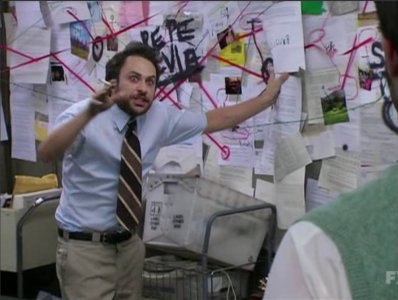OHvol40
Well-Known Member
- Joined
- Oct 23, 2008
- Messages
- 9,259
- Likes
- 5,275
I’m not a Democrat, and I didn’t vote for whoever that was, but cool!
Just like you Republicans keep electing guys like Ogles, Burchett and DeJarlais. Can't think of the other clown's name who got a degree in university studies and claimed he was an economistOutside of being unrelated to this thread, that democrat congresswoman is an ungrateful pos. Yall democrats keep electing them though.
Just like you Republicans keep electing guys like Ogles, Burchett and DeJarlais. Can't think of the other clown's name who got a degree in university studies and claimed he was an economist
Uh, yea… Illinois is a sovereign state. They can, and should, tell Texas to pound fkn sand.Texas authorities have no jurisdiction in Illinois, so request for the FBI to help in arrests.
Well, it goes back to the primaries. Both parties are putting up shat candidates. Yes, a solid turd is better than diarrhea, but they're both shatI agree that was ridiculous by Ogles. In my peaking order though, someone who claims to put another country over the US is a more egregious act.
Cannot let the Dems just sit in ILL as long as they want and hold things up in Texas. Texas has a legal right to go after them.Uh, yea… Illinois is a sovereign state. They can, and should, tell Texas to pound fkn sand.
A civil warrant from the State of Texas means jack shyt in the State of Illinois.
Yall are wild with what you are ok with transpiring, as long as you have the numbers.
You will be back in the minority, eventually. And you will be screaming bloody murder.
Your whole premise is askew. What is the concept for a supreme court? Is it deciding what is popular or what is constitutional?
Per Lee Corso, not so fast my friend...
This is going to bring some head-shaking and scratching from some here or cat calls, but I'll float this balloon anyway...
Brown v. Board of Education (1954) was a landmark U.S. Supreme Court decision that declared racial segregation in public schools unconstitutional. Right? Right. Yet from the birth of our Constitution in 1787 until 1954 - 167 years - racial segregation was "constitutional".
How could something that was legal in our country for 167 years become illegal? Hmmm...
Did the Constitution change? No, it didn't... only through Amendments can it evolve. And what is the basis of these Amendments? Popular vote in our federal legislature i.e. a reflection of popular opinion.
The basis for amendments to the U.S. Constitution - via the legislature - is outlined in Article V, which provides a structured process for proposing and ratifying changes to ensure they reflect a broad consensus while maintaining the document’s stability. The amendment process is designed to balance adaptability with the need to protect the Constitution’s core principles from fleeting or narrow interests.
An Amendment can be proposed by a two-thirds vote in both the House and Senate which requires significant bipartisan support reflecting a national consensus.
Similarly, did public opinion on the *legal interpretation* of racial segregation as allowed by the original Constitution (along with its popularity-driven Amendments) change by 1954? Yes.
Public opinion evolved over time to recognize that segregation - just like slavery - was simply considered *wrong* (by most). Our governing bodies then changed their interpretation of the Constitution to effectively reflect changing public opinion.
What was Constitutionally legal for 167 years became illegal.
So, yes, in a weird, warped way, the Supreme Court does actually make decisions based upon evolving public opinion... whether they like to admit it or not.

I agree. The Constitution is made to be modified. Those modifications are then considered in SCOTUS rulings.Per Lee Corso, not so fast my friend...
This is going to bring some head-shaking and scratching from some here or cat calls, but I'll float this balloon anyway...
Brown v. Board of Education (1954) was a landmark U.S. Supreme Court decision that declared racial segregation in public schools unconstitutional. Right? Right. Yet from the birth of our Constitution in 1787 until 1954 - 167 years - racial segregation was "constitutional".
How could something that was legal in our country for 167 years become illegal? Hmmm...
Did the Constitution change? No, it didn't... only through Amendments can it evolve. And what is the basis of these Amendments? Popular vote in our federal legislature i.e. a reflection of popular opinion.
The basis for amendments to the U.S. Constitution - via the legislature - is outlined in Article V, which provides a structured process for proposing and ratifying changes to ensure they reflect a broad consensus while maintaining the document’s stability. The amendment process is designed to balance adaptability with the need to protect the Constitution’s core principles from fleeting or narrow interests.
An Amendment can be proposed by a two-thirds vote in both the House and Senate which requires significant bipartisan support reflecting a national consensus.
Similarly, did public opinion on the *legal interpretation* of racial segregation as allowed by the original Constitution (along with its popularity-driven Amendments) change by 1954? Yes.
Public opinion evolved over time to recognize that segregation - just like slavery - was simply considered *wrong* (by most). Our governing bodies then changed their interpretation of the Constitution to effectively reflect changing public opinion.
What was Constitutionally legal for 167 years became illegal.
So, yes, in a weird, warped way, the Supreme Court does actually make decisions based upon evolving public opinion... whether they like to admit it or not.
Nope
